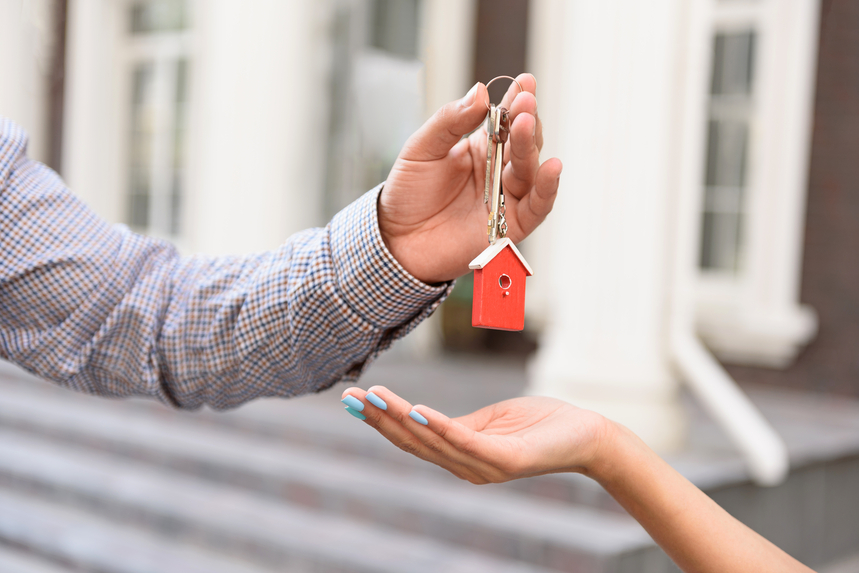Table of Contents
ToggleAre you thinking about buying a property in Egypt this year?
Egypt’s rich cultural heritage, warm climate, affordable cost of living, and growing economy have long attracted expats and international investors. Whether you’re looking to retire along the Red Sea coast, purchase a vacation home near the Nile, or invest in the booming Cairo real estate market, Egypt offers plenty of opportunities. However, buying property in Egypt as a foreigner involves specific rules, restrictions, and procedures you should understand before committing.
This 2025 guide will walk you through everything you need to know about buying property in Egypt as a foreign national — from legal regulations and ownership types to taxes, documentation, and helpful tips.
Can Foreigners Buy Property in Egypt?
Yes, foreigners can buy property in Egypt, but there are certain restrictions and conditions depending on nationality, location, and type of property. Egyptian property laws allow foreigners to own real estate under Law No. 230 of 1996, though there are important caveats:
Key Restrictions:
-
Foreigners may own up to two properties in Egypt.
-
The total area of ownership must not exceed 4,000 square meters.
-
Properties must be used for residential purposes only.
-
The buyer may not sell the property for five years after purchase, in some cases.
-
Agricultural land and property near military zones or national security areas are off-limits.
It’s always wise to consult a local real estate lawyer who understands these laws in detail.
Popular Areas for Foreign Buyers
Egypt offers a wide variety of real estate options, depending on your purpose (vacation, residence, investment):
Cairo & New Cairo:
-
Ideal for those working in Egypt or interested in urban property investment.
-
Fast-growing suburbs like New Cairo, Sheikh Zayed, and the New Administrative Capital are popular among international investors.
Alexandria:
-
A coastal city with historical charm and a more Mediterranean feel.
Red Sea Resorts (Hurghada, El Gouna, Sharm El Sheikh):
-
Popular with retirees and expats, these areas offer resort-style living and great rental income potential.
Luxor and Aswan:
-
While less common, these cities are attractive to history buffs or those looking for quiet, affordable living near ancient wonders.
Legal Framework and Ownership Structure
In most cases, foreigners can own freehold property — meaning full ownership of the land and the building — especially in designated tourist and investment zones. However, in certain urban areas, leasehold ownership (typically 99 years) may apply.
In Sinai, foreigners cannot hold freehold property and must enter into long-term lease agreements (often 99 years renewable).
Foreigners can also own property via an Egyptian company (typically an LLC), which provides more flexibility and protection in some cases, especially for commercial property.
Step-by-Step Process to Buy Property in Egypt as a Foreigner
Here’s a general roadmap of how to buy property in Egypt in 2025:
Step 1: Choose a Property
Engage a licensed real estate agent familiar with foreign transactions. Verify that the property has a clear legal title and is not mortgaged or disputed.
Step 2: Legal Due Diligence
Hire an independent lawyer to:
-
Confirm the seller’s legal ownership.
-
Check zoning and planning permissions.
-
Draft or review the purchase agreement.
-
Translate documents if needed.
Step 3: Sign Preliminary Contract
A deposit (typically 10–30%) is paid upon signing a preliminary sales agreement. This agreement includes the purchase price, payment terms, handover date, and other conditions.
Step 4: Pay Taxes and Fees
You’ll need to account for:
-
Registration fee: 1%–3% of property value.
-
Stamp duty: Around 2.5%–3%.
-
Legal fees: Usually 1%–2% of the purchase price.
-
Real estate agent commission: Typically 2%–3%.
Step 5: Final Contract and Title Registration
Once full payment is made, a final sale contract is signed and notarized at the Real Estate Registration Office. This process officially transfers ownership to your name.
Depending on your nationality and the property’s location, it can take 3–12 months for final registration.

Required Documents
To complete the property transaction, foreigners will need the following:
-
Valid passport (with visa if required)
-
Tax identification number (TIN) in Egypt
-
Bank account in Egypt (not always required, but recommended)
-
Preliminary and final sales agreements
-
Property’s official title deed
-
Proof of payment (bank transfers or receipts)
-
Power of attorney (if you’re using a local agent or lawyer)
Financing and Currency Regulations
Most foreigners buy in cash, as getting a mortgage from an Egyptian bank is difficult unless you’re a resident with local income. A few international banks may offer financing with strict terms, but options are limited.
Foreigners are allowed to transfer money into Egypt, but currency must be exchanged through official channels. It’s best to keep all receipts and documentation for currency exchanges and bank transfers for legal and tax purposes.
Repatriation of funds (such as profits from selling the property) is generally allowed, but you must comply with Central Bank of Egypt (CBE) regulations and provide evidence of the source of funds.
Taxes on Property Ownership and Sale
-
Annual property taxes are relatively low, around 10% of the rental value for residential properties.
-
Capital gains tax on property sales is currently 2.5%, payable by the seller.
-
Rental income is taxable at progressive rates (ranging from 10% to 25%) if you lease out the property.
Foreigners must file taxes if they earn income in Egypt, including rental income.
Tips for Foreign Buyers in 2025
-
Avoid buying off-plan unless you trust the developer. Delivery delays are common.
-
Make sure the developer is registered and that the project has the necessary permits.
-
Use a bilingual sales agreement if you don’t read Arabic.
-
Be cautious of informal deals or cash-only offers — insist on bank transfers and receipts.
-
Ask for a no-objection certificate (NOC) if buying in gated or tourist compounds.
-
Always confirm zoning restrictions, especially in Sinai and desert areas.
-
Hire your own independent lawyer — don’t rely solely on the seller’s legal team.
Post-Purchase Considerations
Once you’ve purchased your property, consider the following:
-
Register utilities (electricity, water, internet) in your name.
-
Hire a property management company if you don’t live in Egypt full-time.
-
Explore residence permits if you plan to stay long-term. Property ownership does not automatically grant a visa, but it can support a residence application.
-
Consider long-term security arrangements and community association fees.
Final Thoughts
Buying property in Egypt as a foreigner in 2025 is absolutely achievable — and potentially very rewarding — if approached carefully. While the process has its complexities, particularly regarding legal registration and ownership restrictions, the costs are relatively low compared to many other countries, and the market remains attractive.
Whether you’re drawn by the ancient history of Cairo, the relaxing shores of the Red Sea, or investment potential in emerging cities, Egypt offers a dynamic and diverse property landscape.
Always seek professional guidance, understand your rights, and take your time — and your Egyptian real estate adventure could become one of the most rewarding investments of your life.
Frequently Asked Questions
Can a foreigner legally buy property in Egypt?
Yes, foreigners are allowed to buy property in Egypt under Law No. 230 of 1996. However, the law imposes a few limitations:
-
A foreigner may own up to two properties.
-
The total land area must not exceed 4,000 square meters.
-
The property must be used for residential purposes.
-
In some cases, the property cannot be sold for five years after purchase.
Additionally, foreigners cannot own property in Sinai — they can only lease it (usually long-term leases of up to 99 years). Ownership of agricultural or military-zoned land is prohibited.
Which cities or areas in Egypt are popular among foreign buyers?
Foreign buyers are generally drawn to:
-
Cairo & New Cairo: Modern apartments, gated communities, and growing investment potential.
-
Red Sea Resorts (Hurghada, El Gouna, Sharm El Sheikh): Ideal for vacation homes, retirees, and Airbnb-style rentals.
-
Alexandria: A coastal city with a European vibe and historical significance.
-
Luxor & Aswan: Perfect for those seeking cultural immersion or quiet, affordable living.
Each area offers different advantages depending on whether the buyer is seeking lifestyle, investment, or tourism income.
What kind of property ownership is available to foreigners in Egypt?
Foreigners can own:
-
Freehold property: Full ownership of the building and the land beneath it (in most parts of Egypt).
-
Leasehold property: In restricted areas like Sinai, foreigners can only lease property for up to 99 years.
-
Company ownership: Foreigners may also set up an Egyptian company (like an LLC) to buy more than two properties or to bypass some limitations. This route is often used for commercial property or large real estate portfolios.
